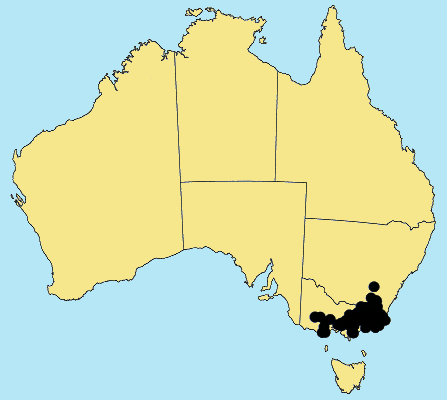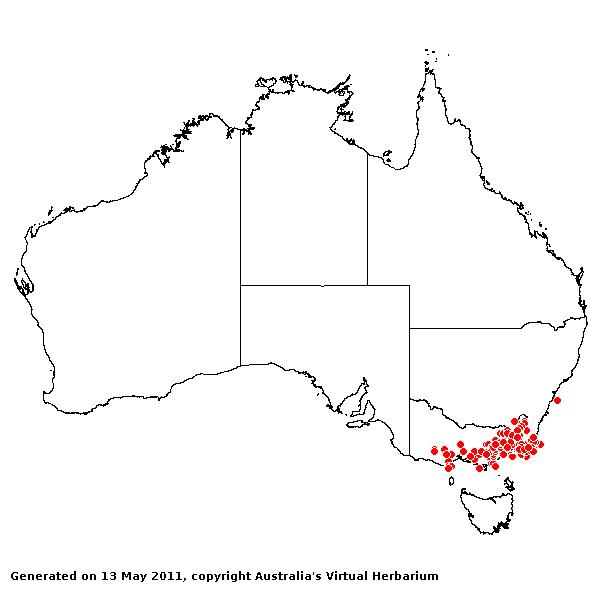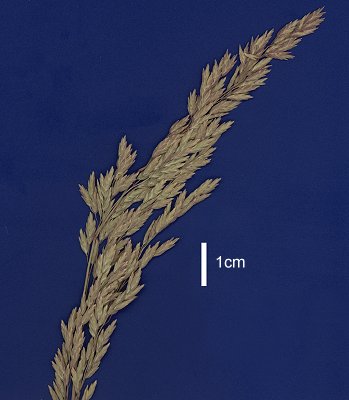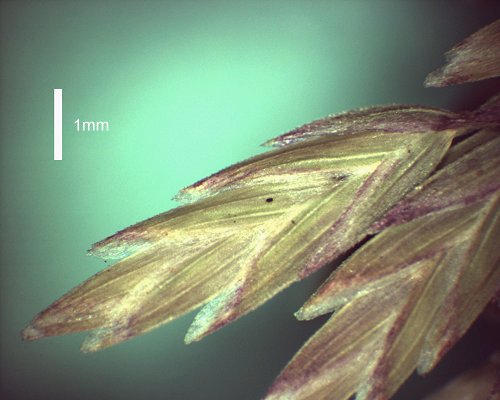Poa ensiformis
Vickery. Contr. New South Wales Natl Herb. 4: 188–189, t. IX, 1, t. X, 3
(1970).
Classification. (GPWG 2001) : Subfamily Pooideae.
Tribe Poeae.
Type of Basionym or
Protologue Information: Australia: New South Wales: ridge above Happy Jacks
township, ca. 12 miles s of Kiandra: 20 Jan 1958, J. Vickery (HT: NSW
43474).
Key references
(books and floras): [2002] D.Sharp & B.K.Simon, AusGrass, Grasses of
Australia, [2008] S.W.L.Jacobs, R.D.B.Walley & D.J.B.Wheeler, Grasses
of New South Wales (349), [2009] A.Wilson (ed.). Flora of Australia,
Vol 44A. Poaceae 2 (331).
Illustrations:
[2008] S.W.L.Jacobs, R.D.B.Whalley & D.J.B.Wheeler, Grasses of New South
Wales, 4th edn (349).
Habit.
Perennial. Rhizomes present, elongated. Culms 20–110 cm tall, 2–3 -noded.
Mid-culm nodes glabrous. Lateral branches simple. Leaves mostly basal.
Leaf-sheaths smooth or scaberulous, glabrous on surface. Ligule a fringed
membrane, a ciliolate membrane, 0.4–2 mm long, abaxially hairy, truncate or
obtuse. Leaf-blades erect, flat or conduplicate, 5–18.5(–30) cm long, 2–5 mm
wide. Leaf-blade surface smooth or scaberulous, glabrous.
Inflorescence.
Inflorescence compound, a panicle. Panicle lanceolate, loose, 5–18 cm long.
Spikelets.
Spikelets pedicelled. Fertile spikelets many flowered, with at least 2 fertile
florets (2–8), comprising 2–8 fertile floret(s), with diminished florets at the
apex, oblong, laterally compressed, 5–10 mm long.
Glumes. Glumes
similar. Lower glume oblong, membranous, keeled, 1-keeled, 3 -nerved. Upper
glume oblong, 2.8–3.4 mm long, membranous, keeled, 1-keeled, 3 -nerved. Upper
glume surface asperulous.
Florets.
Fertile lemma 3.2–4.3(–5) mm long, keeled, 5 -nerved. Lemma surface indumented.
Lodicules present. Anthers 3. Grain 2 mm long.
Continental
Distribution: Australasia.
Australian
Distribution: New South Wales, Victoria.
New South Wales:
South Coast, Southern Tablelands. Victoria: East Gippsland, Eastern
Highlands, Gippsland Highlands, Gippsland Plain, Grampians, Otway Range,
Snowfields.
Notes. Endemic.
SE mainland Australia - S from Brindabella Ra. In mountain forests or
grasslands. Flowers Oct.-Mar.




